On Hurricane Katrina’s 20th Anniversary, BU Employee Who Volunteered in Storm’s Aftermath Recalls the Devastation—and Residents’ Resilience
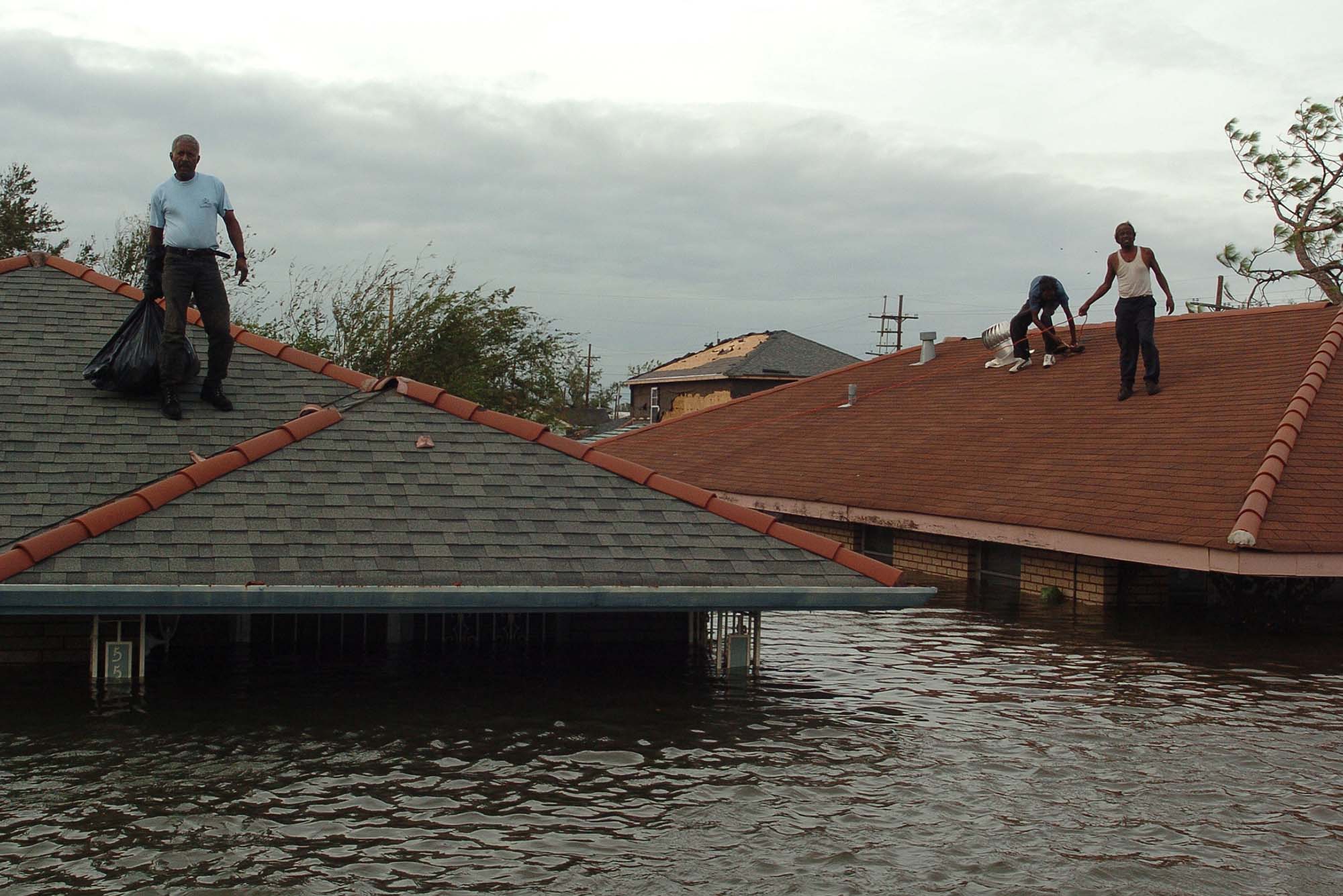
Stranded on roofs, residents of New Orleans’ Lower Ninth Ward waiting for rescue boats, August 29, 2005. Hurricane Katrina slammed Louisiana as a category 4 storm, forcing levies to break and flooding 80 percent of New Orleans. Photo by Marko Georgiev/Getty Images
On Hurricane Katrina’s 20th Anniversary, BU Employee Who Volunteered in Storm’s Aftermath Recalls the Devastation—and Residents’ Resilience
Daniel Tyburski took a leave of absence from his CAS role to help with cleanup of the costliest US hurricane ever
The images are still fresh in Dan Tyburski’s mind: with the 20th anniversary of Hurricane Katrina nearing, he can recall watching images of people clinging to their roofs in New Orleans’ Ninth Ward, desperately awaiting rescue after the storm slammed into the Gulf Coast on August 29, 2005. The hurricane caused widespread flooding and an estimated $125 billion in damage—and claimed the lives of more than 1,300 people.
As he watched the tragedy unfold, Tyburski (Wheelock’10), then 27, was a program coordinator in Boston University’s College of Arts & Sciences Academic Advising office. “It was terrible,” he remembers thinking.
He felt the urge to help and began searching for disaster relief organizations that needed assistance. He came across Disaster Corps, a now-defunct nonprofit formed after Hurricane Floyd in 1999. Tyburski emailed the group and heard back almost immediately: Come on down, they wrote.
“I had done a lot of construction work in high school and college and thought, I can swing a hammer. I was like, I’ve got to do something,” he says.

He took an unpaid leave of absence from the University and drove to Bay St. Louis, Miss., where Disaster Corps volunteers were working to demolish houses. (His fiancée, a Louisiana native, joined him later.)
“You’d go in and open up a kitchen cabinet and the water had come up so high that months after the hurricane, glasses on the top shelf would still be filled with water,” says Tyburski, now associate director of the BU College of Engineering Undergraduate Programs Office.
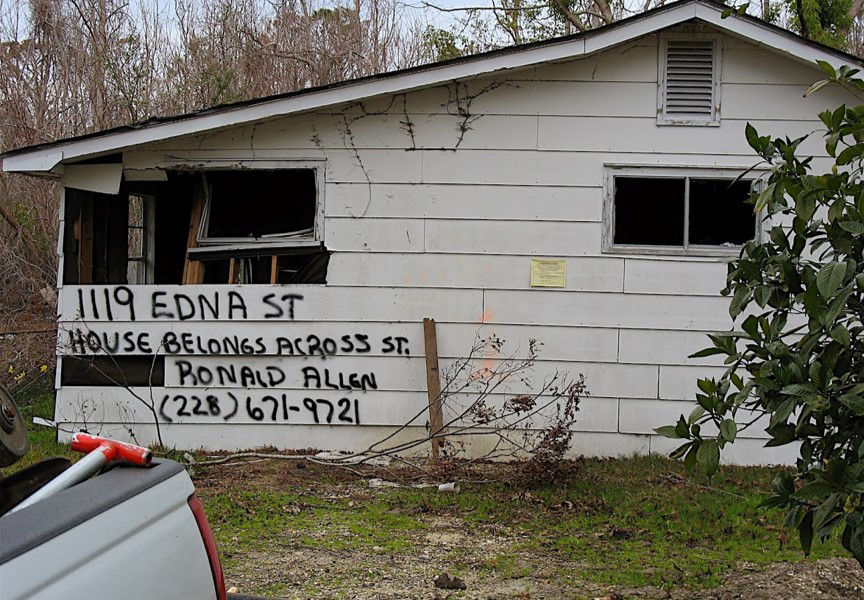
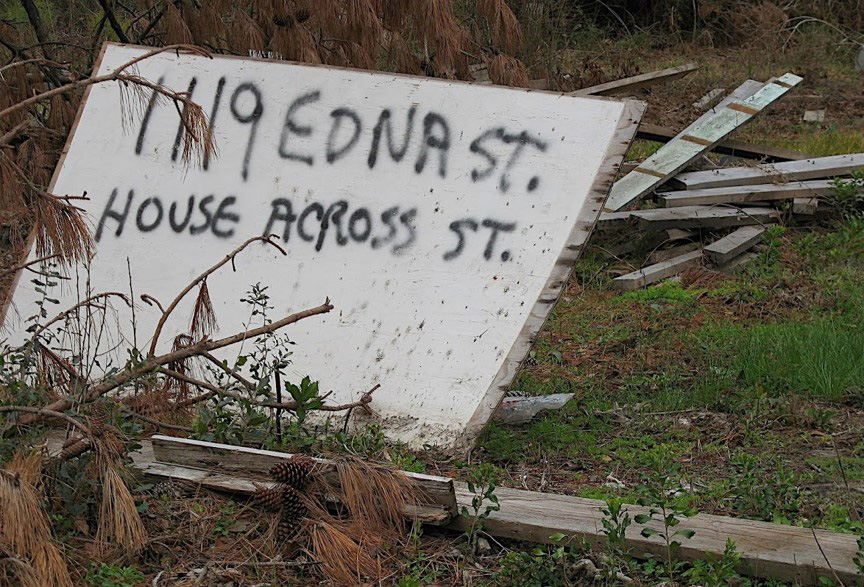
He spent his days taking damaged buildings down to the studs, dragging refrigerators filled with spoiled food, heavy washers and dryers, and still-soggy sheetrock and carpeting to the curb, for the Army Corps of Engineers to haul away to landfills. It was hard and emotionally draining work, especially when he came across the remains of pets who had been buried in debris.
“You’d be absolutely spent by the end of the day,” Tyburski recalls.
The volunteer team, which included an 80-year-old hay farmer from Oregon and a classically trained French chef, camped out on a local Little League baseball field. A refrigerated truck filled with donated frozen food fed the volunteers, who slept in military tents. And a military outdoor zip-up shower stall provided “nominal hot water,” he recalls.
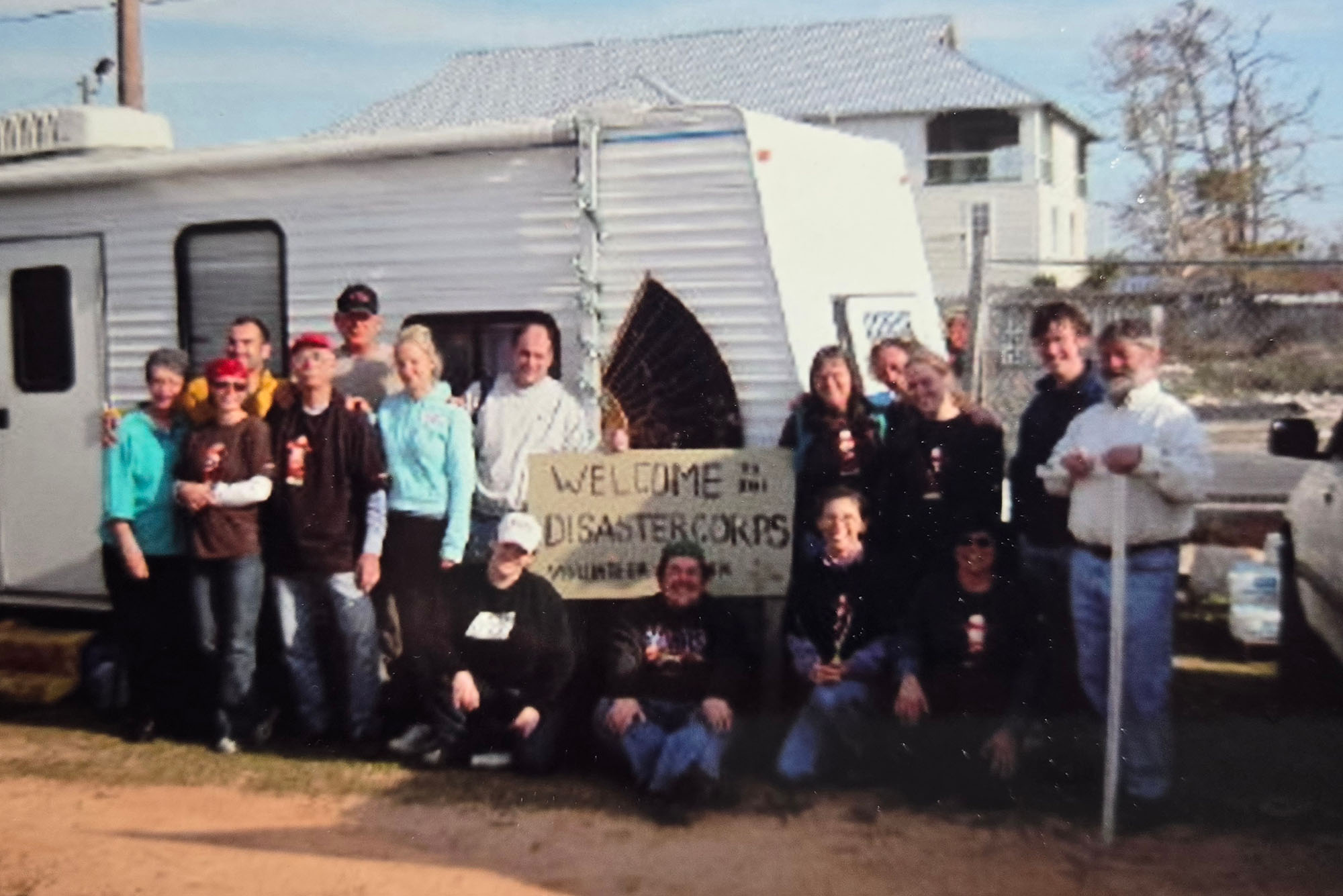

“Folks were bringing out whatever they could for us,” he says. “If they could make coffee in their FEMA trailers, they would.”
Tyburski recalls one resident hosting a Super Bowl party in his ruined art gallery and inviting the whole community to attend. And he remembers traveling to Mardi Gras in New Orleans that winter and being struck by the resilience of local residents. “Women everywhere had made dresses and gowns out of the blue tarps that covered all the roofs,” he says. “They were overwhelmed by loss. But everyone had lost. And so everybody was rebuilding together.”
Back to BU
When Tyburski returned to Boston, word spread on campus about his trip. When he was invited to join the BU chapter of Habitat for Humanity on a trip to North Carolina for the University’s yearly volunteer Alternative Spring Breaks [now called Alternative Service Breaks] to work on a Habitat Home, he jumped at the chance.
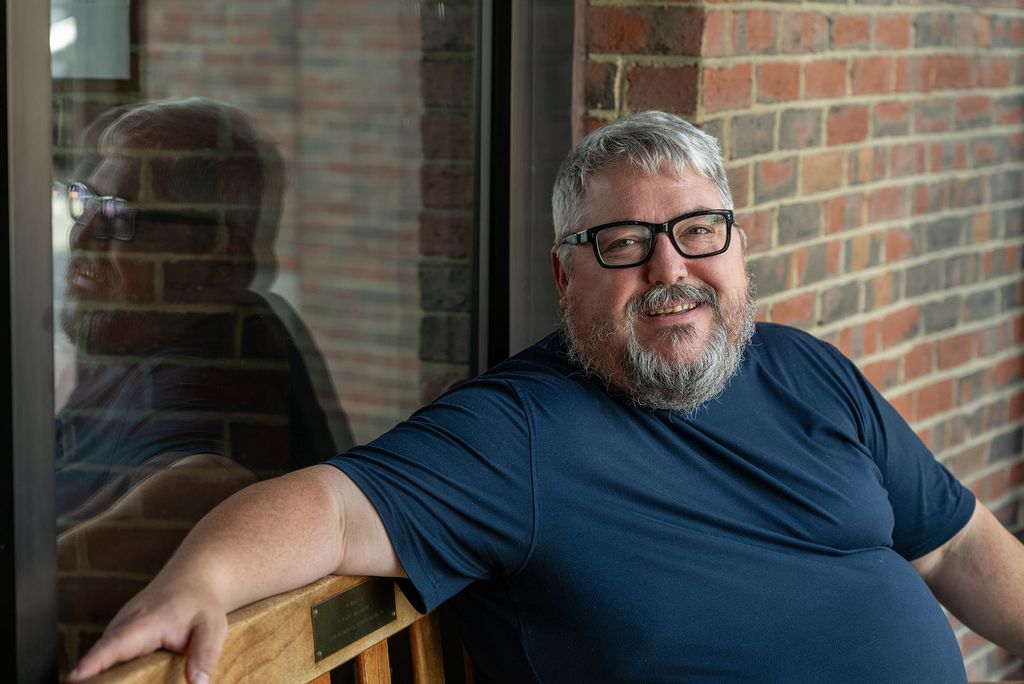
Over the next 12 years, he traveled around the country with the group to places like North Carolina, South Carolina, Florida, Alabama, Chicago, and Buffalo, N.Y.
“It was a wonderful way to spend time with students,” Tyburski says. “These were students who just wanted to do good in the world.”
How does he think the nation should observe the 20th anniversary of Katrina?
Tyburski says he hopes it provides an opportunity “for people to think about those who are less fortunate than they are and that they think about what it is they can do in the short term just to help folks a little.
“There are so many organizations out there that are looking for folks to help out,” he says. “Many hands make the work light, right?”
Comments & Discussion
Boston University moderates comments to facilitate an informed, substantive, civil conversation. Abusive, profane, self-promotional, misleading, incoherent or off-topic comments will be rejected. Moderators are staffed during regular business hours (EST) and can only accept comments written in English. Statistics or facts must include a citation or a link to the citation.